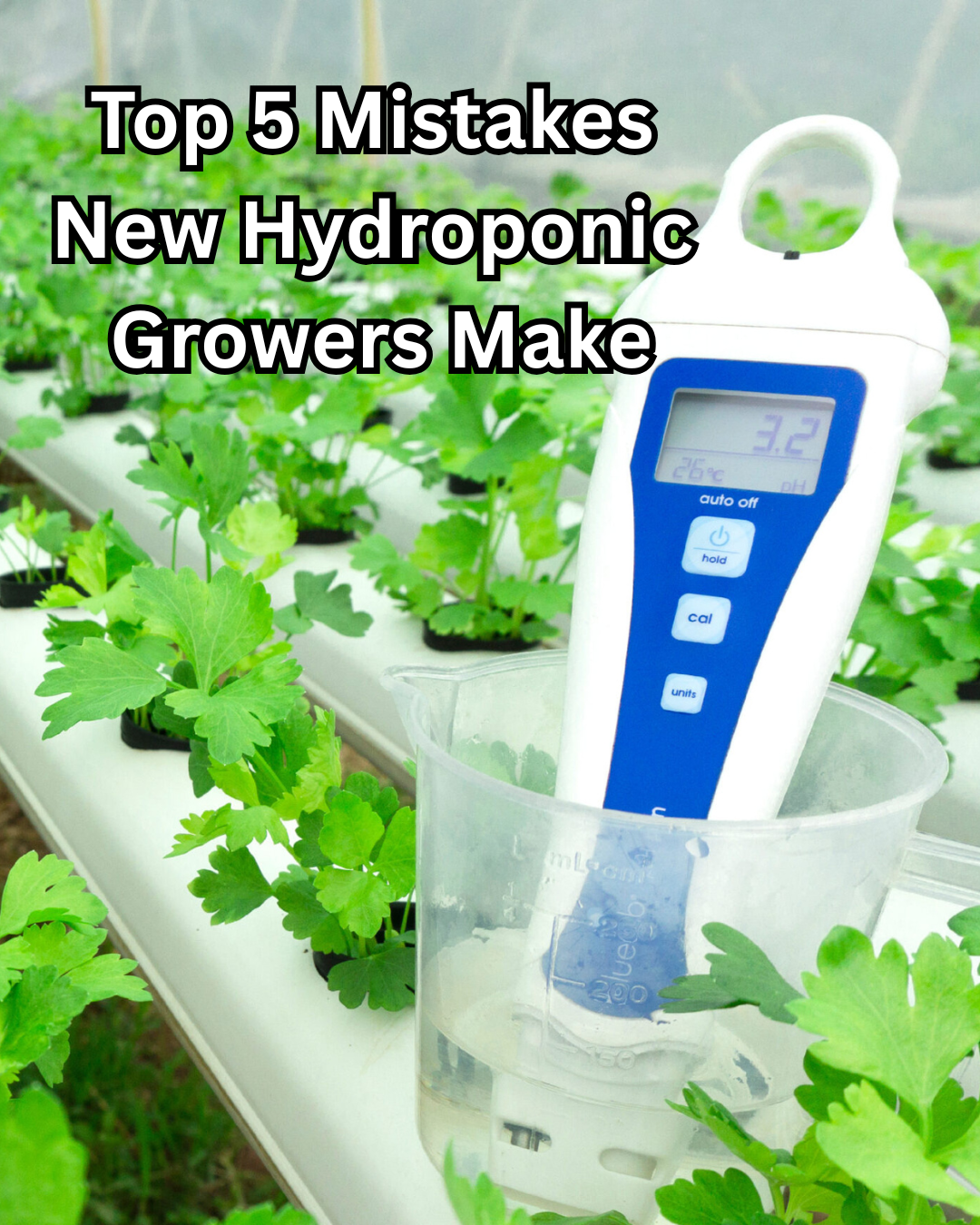
Top 5 Mistakes New Hydroponic Growers Make (And How to Avoid Them)
Share
Are you new to hydroponics and want to avoid costly beginner mistakes? Whether you’re starting a small home system or thinking long-term about commercial hydroponic farming, knowing what not to do can save you time, money, and a lot of frustration.
At Turks and Caicos Horticulture, we see new growers making the same common errors. This guide breaks down the top 5 hydroponic mistakes — and how to avoid them — so your plants stay healthy and productive from day one.
🌱 1. Ignoring pH and EC Levels
The mistake: Many beginners skip testing water pH or electrical conductivity (EC), thinking it doesn’t matter much.
Why it matters: pH and EC are crucial for nutrient uptake. If they're off, your plants can’t absorb what they need, even if the nutrients are present.
Avoid it by:
-
Using a digital pH and EC meter (like the BlueLab Combo Meter)
-
Keeping pH between 5.5–6.5 for most crops
-
Monitoring EC based on plant type (e.g., lettuce thrives around 1.2–1.8 EC)
-
Testing daily, especially in small reservoirs
✅ Tip: Calibrate your meters weekly and clean probes with fresh water after every use.
💡 2. Choosing the Wrong System for Your Space
The mistake: Setting up a large or complicated system that doesn’t fit your goals, budget, or available space.
Avoid it by:
-
Starting small with an NFT (Nutrient Film Technique) system — ideal for leafy greens like lettuce or basil
-
Measuring your indoor or outdoor grow space before building
-
Considering your lighting options — natural sun or grow lights
-
Planning for airflow, drainage, and access to electricity and water
Example:
In a 4x2 ft indoor space, you can run a small NFT system with 2 grow channels (18 plants each), producing 25–30 heads of lettuce every 3–4 weeks with minimal input and low water use.
💧 3. Not Cleaning or Changing Nutrient Water Often
The mistake: Allowing water to sit for weeks or letting algae build up in pipes and reservoirs.
Avoid it by:
-
Changing nutrient solution every 10–14 days
-
Keeping tanks covered to block sunlight (reduces algae growth)
-
Scrubbing channels, reservoirs, and tubing weekly
-
Using food-safe hydrogen peroxide or mild bleach solution for sanitizing (rinse thoroughly)
🚫 Dirty systems invite pests, bacteria, and root rot. Clean water = healthy plants.
☀️ 4. Poor Lighting Setup
The mistake: Not giving plants enough light or using the wrong type of grow light.
Avoid it by:
-
Placing systems where plants get 6–8 hours of direct sunlight (if outdoors)
-
Using full-spectrum LED grow lights (12–16 hours per day for leafy greens)
-
Adjusting light height as plants grow to prevent stretching or burning
-
Installing timers for consistent cycles
🌞 Without strong, consistent light, your plants will grow leggy, pale, or just not at all.
🧪 5. Using Soil Fertilizer Instead of Hydroponic Nutrients
The mistake: Using regular plant food or garden fertilizer in your water — it’s not made to dissolve properly in hydroponic systems.
Avoid it by:
-
Only using nutrients labeled for hydroponics
-
Following feeding schedules and dosage on the label
-
Watching your plants closely for deficiencies or excess buildup
-
Adjusting nutrient mix based on growth stage (e.g., more nitrogen during vegetative stage)
🥬 Leafy greens like lettuce and basil need balanced nutrient blends to thrive. Stick to the right formula!
👨🌾 Final Thoughts
Hydroponics is an incredible way to grow fresh, pesticide-free food — especially in places like the Caribbean where traditional farming is limited. By avoiding these 5 beginner mistakes, you’ll save money and build a more successful garden, whether you're growing at home or preparing to scale your operation.
